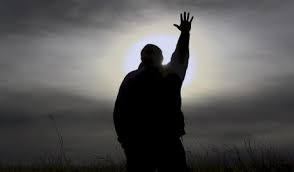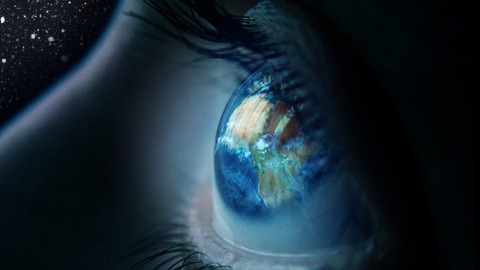“Tread down my need, and faith mounts up; keep my need up, and faith is trodden down!” – Shakespeare, King John
 Thirty years ago, after hearing a great religious teacher say, “No teacher, however illumined, has changed the basic course of man,” I foolishly asked, and kept asking, what would it take to do so?
Thirty years ago, after hearing a great religious teacher say, “No teacher, however illumined, has changed the basic course of man,” I foolishly asked, and kept asking, what would it take to do so?
First of all, the vast majority of so-called educated people would not agree with that statement, or would hedge about, circumscribing it with half-truths about how far humankind has advanced culturally, scientifically and technologically.
But to my mind, the truth of the statement, and its implications, could not be avoided. And it is getting harder and harder for even the most dyed-in-the-wool positive thinker to avoid the crisis of human consciousness.
As far as what it will take to change the course of humankind, that seems clear, even as it seems impossible: A psychological revolution in consciousness as a whole.
But if not even such illumined human beings as the Buddha and Jesus in ancient times, or J. Krishnamurti in the 20th century (who made the statement above), could change the basic course of humankind, what hope is there for humanity?
I feel that’s a wrong question. Man may be one of the most incorrigible sentient species in the universe. A sufficient number of people (perhaps a very small percentage, but even so) have simply not been ready to radically change. We have been essentially the same creatures for tens of thousands of years, ever since modern humans first emerged in eastern Africa and began spreading around the world.
eastern Africa and began spreading around the world.
So there is a genuine substratum of human nature, plus all the millennia of experience with people being essentially what we are: self-centered, venal, greedy, grudge-holding, tribal, violent. Fixed ideas about what human nature is, and how it will never change, is the icing on the now crumbling cake.
So there’s a huge inertia, which until recently perhaps, has been completely intractable. Because human nature is intractable does mean it is immutable however. A few people throughout history have been different, and a few have radically changed. Since cultures and nations are rapidly eroding, and nearly everyone now feels lost (and those that don’t are even more lost), there is a greater chance than ever before that a vital, unknowable number of people can awaken the requisite degree of insight and intelligence within themselves.
The time of the singular religious figures is past. Humanity has been there, done that, and it hasn’t worked. The greatest failure of intelligence taking this approach was Jesus, who was nailed to a cross for his attempt. Not that Jesus failed, but his mission to change men and women’s hearts certainly did.
The idea, as a former president of the Society of Christian Philosophers said, that “God responded to free creatures he created turning their backs on him and getting involved in sin and evil, by sending his son into the world to suffer and die so that human beings might once more be in a right relationship to God,” is one I’m sure Jesus would find preposterous, even abhorrent.
 Whatever God is, Jesus’ suffering and dying on the cross certainly did not put humanity in right relationship to God, the earth and ourselves in the 2000 years since his death. The greatness of Jesus is that he did not lose faith even during his scourging and at the hour of brutal death, despite his incomprehension at the failure of his mission (“My God, my God, why have you forsaken me?…Forgive them, for they know not what they do.”)
Whatever God is, Jesus’ suffering and dying on the cross certainly did not put humanity in right relationship to God, the earth and ourselves in the 2000 years since his death. The greatness of Jesus is that he did not lose faith even during his scourging and at the hour of brutal death, despite his incomprehension at the failure of his mission (“My God, my God, why have you forsaken me?…Forgive them, for they know not what they do.”)
Whatever energy flowed through him, Jesus was a man for Christ sakes. Though his mission failed spectacularly, he saw it through. Weep for him, and humanity, don’t worship him.
A psychological revolution is not the perfection of the human being—there is no such thing as perfection—but a redirection of the course of humanity at our core, through the awakening of intelligence in a sufficient number of ordinary people. Faith as belief is the biggest impediment, but faith in Intelligence and humanity at this moment of greatest darkness is a great virtue.
Because I wouldn’t let go of the question until I found out what it would take, the question won’t let go of me until I find out: Can it happen now?
After a half hour sitting beside the ankle-deep stream (before the recent rains turned the thin current into a small, raging river), I stand to stretch. As soon as I do, a large fish shoots across the creek from the shallows.
I barely make out its shadow in the shadowed stream, but it’s too large to be in such a thin waterway. Even so, there it was, a mystery ushering in Mystery.
No matter what happens or doesn’t happen with the work, negation in meditation is the first thing. Without will, effort or goal, undivided attention ends thought, allowing the Brahman to be.
Martin LeFevre

